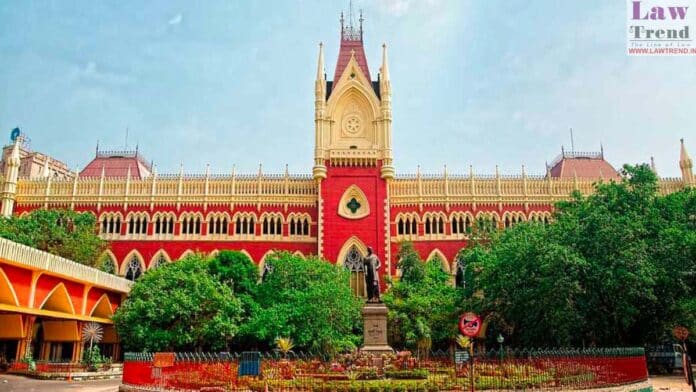The Calcutta High Court on Thursday directed that a court-appointed Administrative Pendente Lite (APL) cannot interfere with all internal affairs of the companies of all the tiers in the Priyamvada Devi Birla estate, which is under litigation for nearly two decades between the Birla family and the Lodhas.
Noting that the initial proceedings with a probate application for the estate of Priyamvada Devi Birla (PDB) before the high court commenced in 2004, a division bench presided by Chief Justice T S Sivagnanam expressed “hope and trust” that the testamentary court will ensure that the letters of administration suit is disposed of expeditiously, without granting any unnecessary adjournment to either side.
The bench, in a 300-page judgement, directed that the three-member APL “cannot interfere with all internal affairs of the companies of all the tiers.”
A spate of litigation has arisen before the high court over the estate and it appointed the APL in August 2010.
The division bench, also comprising Justice Sabyasachi Bhattacharyya, held that the steps taken by the APL in registering its nominees as members of the companies where the deceased testatrix (woman who made a will) held shares, in consonance with and in the ratio of the shareholding rights of PDB in each of such companies, is perfectly justified in law.
It said that the APL, through its nominees, may decide which way the votes of the testatrix’s shares should go and how they would exercise their voting rights and election of directors.
The nominees, as such shareholders, may participate in shareholders’ meetings and decision-making processes of the tier-one companies, it directed on appeals challenging a single bench order that had restrained Harsh Vardhan Lodha from holding any office in any of the entities of M P Birla Group during pendency of a suit over succession of the M P Birla Estate.
The court said that since the tier-one companies are also shareholders of other companies in the secondary and tertiary tiers, the APL, through its nominees, may also decide how to go about asserting the interests of the estate of PDB in the secondary and tertiary-tier companies through the tier-one companies’ actions as shareholders of the latter companies.
The bench said that the APL cannot jump steps to directly take or pre-empt business decisions in respect of the tertiary-tier companies without going through the process of first taking decisions in the first-tier companies and getting its decisions approved through the representation of the first-tier companies as shareholders in the lower tier companies.
“As and when any major decision is required to be taken regarding transactions/transfers of the shares themselves, the APL mandatorily has to approach the testamentary court for necessary orders,” the bench directed.
It further directed that the APL will have to take appropriate directions and orders from the testamentary (probate) court prior to initiating or contesting any litigation.
Observing that the very composition of the APL brews conflict of interest, since two of the members represent the two warring factions, the division bench said the only way in which it can function effectively is for the third member, who is necessarily a retired nominated judge, to act as arbiter in case of conflict of decision between the other two members.
The bench directed that in case there is no resolution, the third member will exercise veto power and for major decisions, the APL may seek appropriate orders from the testamentary court.
It said that the APL must keep in mind that it is not an adjudicatory authority but merely the representative of the estate of the deceased testatrix.
The judgement held that it cannot be said that Harsh Vardhan Lodha is barred from disputing that the extent of the estate of PDB ranges over all the companies, including the companies in which PDB did not have majority shareholding by virtue of her controlling interest.
The division bench passed the judgement on appeals filed by four companies – Universal Cables Limited, Birla Cables Limited, Vindya Telelinks Limited and Birla Corporation Limited.
The court noted that the matter concerns the estate of late Priyamvada Devi Birla, wife of late Madhav Prasad Birla who passed away on July 30, 1990, leaving behind PDB as his sole legal heir.
PDB executed her last will testament dated April 19, 1999, in which Rajendra Singh Lodha (RSL) was named as executor.
RSL, as executor of PDB’s will, filed an application before the high court seeking a grant of probate of the will, the bench noted. After RSL’s death in 2008, his son Harsh Vardhan Lodha was permitted to proceed with the matter.
Also Read
Following the judgement, Debanjan Mandal, senior partner of the law firm Fox and Mandal representing Lodha, said that the division bench on Thursday “granted major relief to the Lodhas by unequivocally determining that a Testamentary (Probate) Court cannot get into the domain of Companies, Trusts and Societies, its functioning or management.”
The judgement came over three years after a single judge bench removed H V Lodha from the positions he held in various Companies, Trusts and Societies of the M P Birla Group, Mandal said in a statement.
N G Khaitan, senior partner of law firm at law firm Khaitan & Co, who is appearing for the Birla clan, said that further course of action will be taken in the matter after reviewing the order fully.
“The division bench has modified the order of the single judge to a limited extent – partly in favour of the appellant and partly in favour of the respondent,” he said in a statement.




